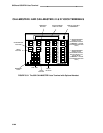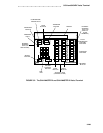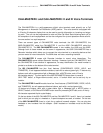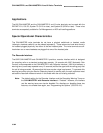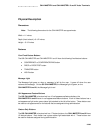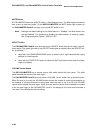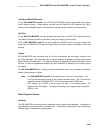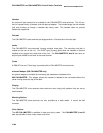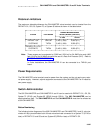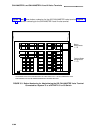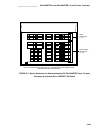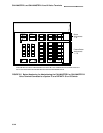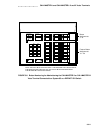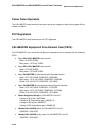
CALLMASTER and CALLMASTER II and III Voice Terminals
LOG IN and RELEASE buttons
On the CALLMASTER II and III, the LOG IN and RELEASE buttons are located in the bottom
row of feature buttons. These buttons
must
be used for these two ACD features: the Log in
feature and the Release feature.
No other feature should be administered on these buttons.
Self-Test
On the 602 CALLMASTER, the user presses and holds down a SELF-TEST button behind the
front panel of the set to perform a self-test of the lights, display, and the ringer.
On the CALLMASTER II and III, the user presses the SELECT button and then presses and
holds down the DROP/TEST button to initiate a test of the lights, ringer, and display on the voice
terminal.
Display
All CALLMASTER voice terminals have a 2-line by 40-character per-line display located at the
top of the faceplate. This allows the user to retrieve personal messages or display queue status
without losing call identification. The terminal displays call appearance-related information on the
first line. All non-call appearance-related and local information is displayed on the second line of
the display.
The 602 CALLMASTER has a display contrast thumbwheel which can be rotated to make the
display contrast darker or lighter.
Note: The CALLMASTER II and III can be optioned for a 1-line
or
a 2-line display. The
2-line (by 40 characters) format is the expected normal usage. The 1-line format is
needed only when CALLMASTER II or III is administered as a 7405D with a
D401 display, as a 7406D, or as any other set with a 1-line display format. The
default is the 2-line display. To change this setting, see ‘‘Programming the Options’’
(555-015-161).
Other Physical Features
Headsets
The CALLMASTER voice terminals are designed to use carbon miked headsets. A maximum of
two headsets can be connected at the same time. The quality of transmission may be affected if
different types of headsets are used together.
3-305




